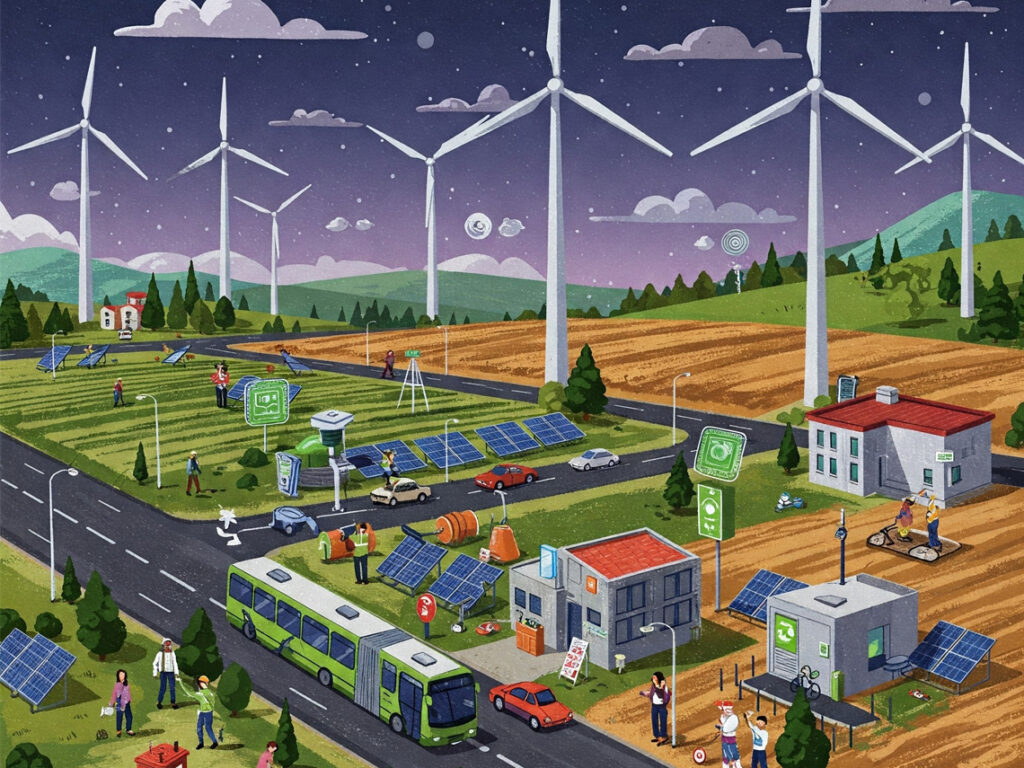Toward a sustainable energy transition…

Besim Islami
09/03/2025
- Navigating the path toward a sustainable energy transition is one of the most pressing challenges of our time. The reliance on fossil fuels has brought about significant advancements, but it has also led to environmental degradation and climate change. Shifting to renewable energy sources like solar, wind, and geothermal is crucial, but this transition requires more than just technological advancements. It demands a fundamental shift in how we produce, distribute, and consume energy. This involves creating supportive policies, investing in infrastructure, and fostering a global commitment to sustainability.
- A successful energy transition must also prioritize equity and justice. It’s essential to ensure that the benefits of clean energy are accessible to all, not just a privileged few. This means addressing the needs of communities that have historically been marginalized and ensuring that the transition creates new opportunities rather than exacerbating existing inequalities. Furthermore, the transition creates new economic opportunities, and will require the development of new job skills, and the retraining of workers that are currently employed in fossil fuel based industries.
- Ultimately, the sustainable energy transition is a complex undertaking that requires collaboration across sectors and borders. It demands innovation, investment, and a shared commitment to a cleaner, more sustainable future. By embracing renewable energy and prioritizing equity, we can create a world where energy is both clean and accessible to all.
- Environmental protection:
Reduced Carbon Emissions: Renewable energy sources like solar, wind, and hydro power generate electricity without producing greenhouse gases, significantly reducing carbon emissions and mitigating climate change.
Cleaner Air and Water: By minimizing reliance on fossil fuels, sustainable energy helps reduce air and water pollution, leading to improved public health and environmental quality.. - Economic Growth:
Job Creation: The renewable energy sector is a rapidly growing industry, creating numerous jobs in manufacturing, installation, maintenance, and research and development.
Energy Independence: By utilizing domestic renewable resources, countries can reduce their dependence on imported fossil fuels, enhancing energy security and economic stability.
- Social Benefits:
Improved Public Health: Cleaner air and water resulting from reduced pollution lead to better health outcomes, including fewer respiratory illnesses and improved cardiovascular health.
Community Development: Renewable energy projects can empower local communities by creating jobs and fostering economic development in rural areas. - Long-term costs savings:
Reduced Energy Costs: While initial investments may be required, renewable energy technologies often have lower long-term operating costs compared to fossil fuel-based systems.
Energy Price Stability: Renewable energy sources can help stabilize energy prices by reducing reliance on volatile global fossil fuel markets.
By embracing sustainable energy solutions, we can create a cleaner, healthier, and more prosperous future for generations to come.

